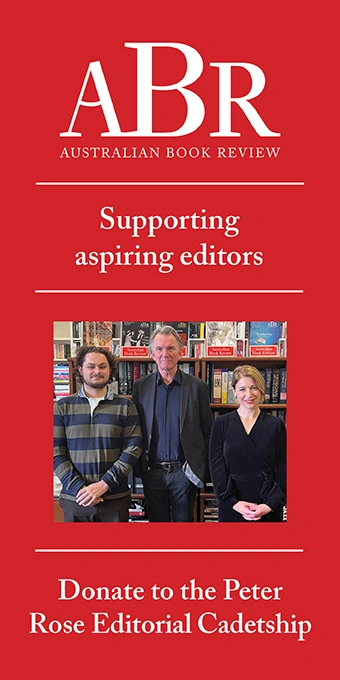Identity Politics
The ABR Podcast
Released every Thursday, the ABR podcast features our finest reviews, poetry, fiction, interviews, and commentary.
Subscribe via Apple Podcasts, Stitcher, Google, or Spotify, or search for ‘The ABR Podcast’ on your favourite podcast app.
‘Rejecting the system it created’: How Trump’s America is reshaping Australia’s regional relations
by Rebecca Strating
Recent episodes:
This week on The ABR Podcast, historian Mark Finnane asks: ‘who gets the right to speak on matters of research within a tradition of empirical scholarship?’ Mark Finnane is a Professor of History at Griffith University and has published widely on Australian and Irish history. Listen to Mark Finnane’s ‘Citational Justice: A revolution in research practice?’, published in the January-February issue of ABR.
... (read more)Personal Politics: Sexuality, gender and the remaking of citizenship in Australia by Leigh Boucher et al.
Last year I turned eighty. Vacillating between denial and celebration, I decided, with some trepidation, on the latter. It was thirty years since I had last had a big birthday party: this one needed to be special. I consoled myself that, old as I am, I am still younger than the president of the United States, Mick Jagger, and the pope.
... (read more)






